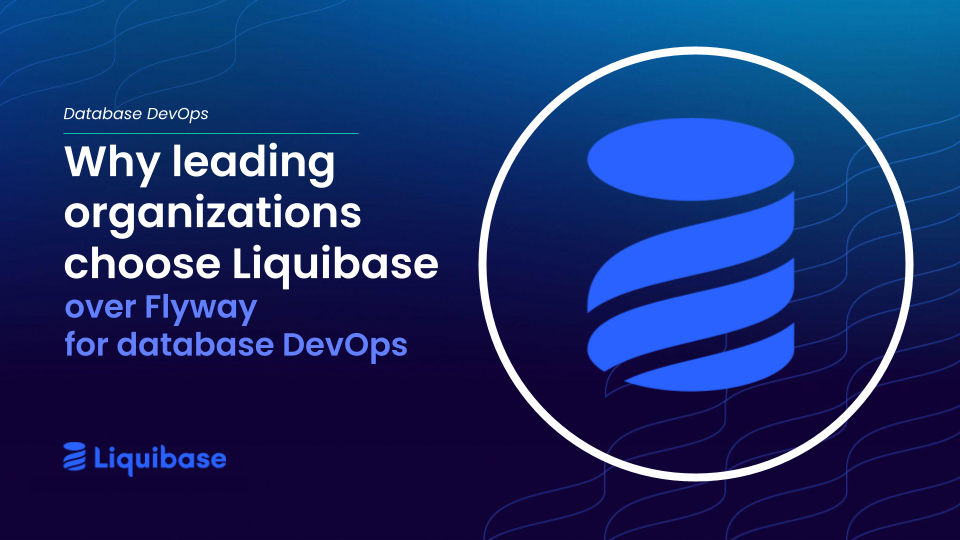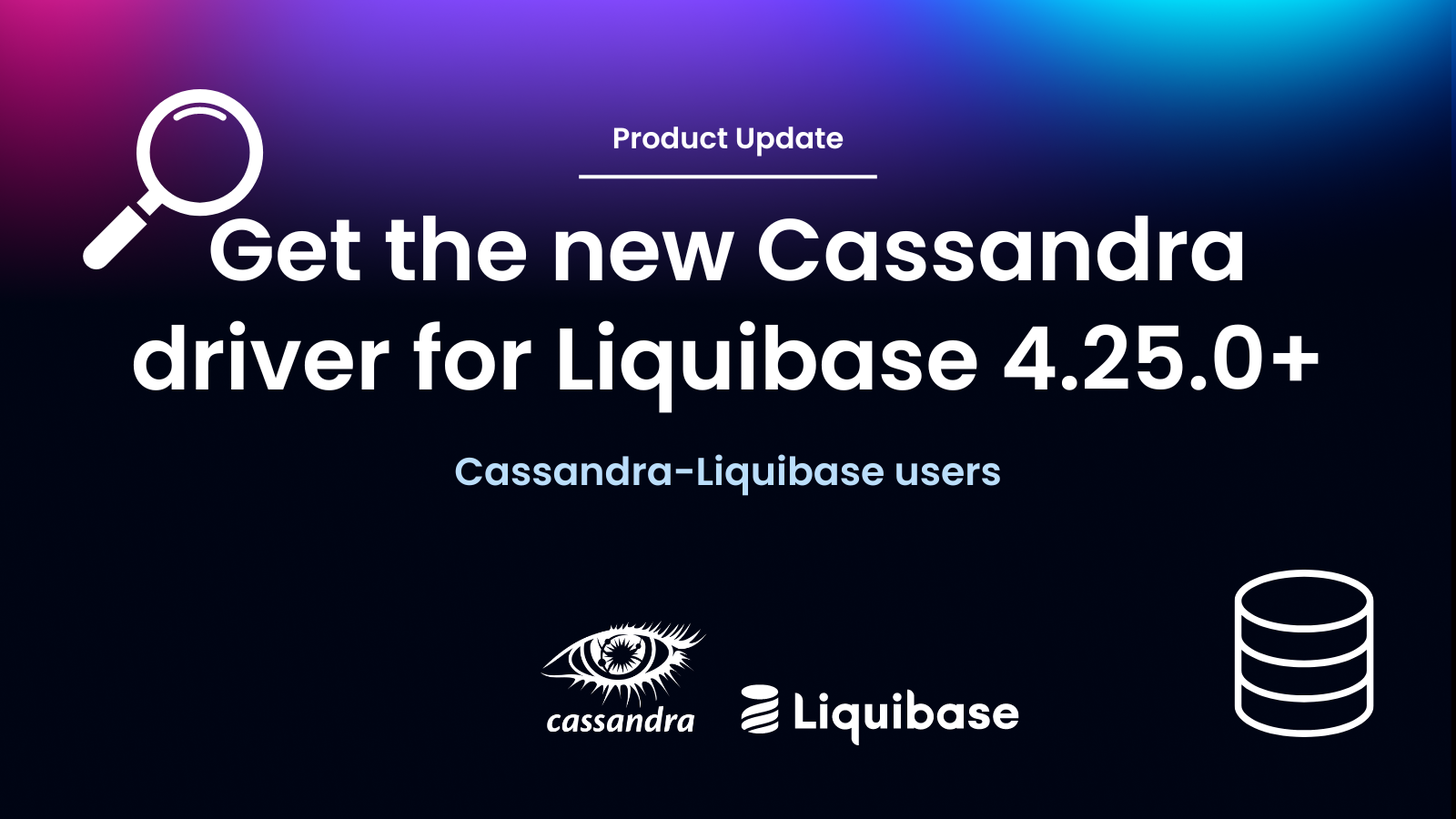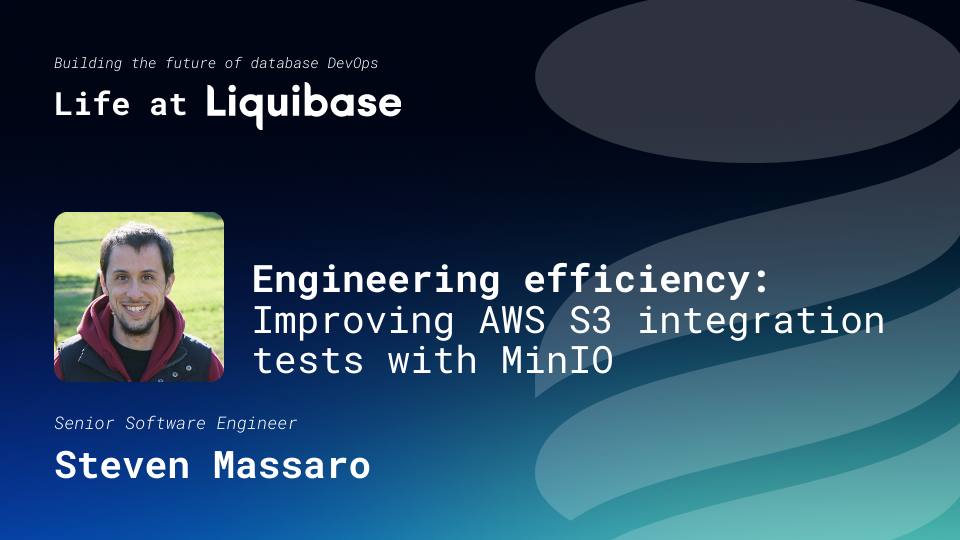February 19, 2024
Meet Loreli Cadapan: Liquibase’s VP of Product charts the future of database DevOps
.png)
In January of 2024, I joined Liquibase as Vice President of Product to oversee and innovate the leading data store pipeline and change management automation platform on the market. While this change happened in the past two months, my own attention towards extending CI/CD to data store workflows stretches back more than two decades.
Why? It helps to understand where I came from.
After earning my Bachelor’s and Master’s in Computer Science from MIT, I started my career in 1997 as a software engineer at two start-ups, one of which IPO’d during my tenure. I then spent more than a dozen years at Oracle, my last five as Director of DevOps. For the better part of a decade, my focus there was on developer productivity, Agile innovation, and cloud transformation.
In my subsequent five years at DevOps/DevSecOps platform JFrog, I grew the U.S. product team from the ground up, helping the company evolve from an 80-person startup to a public entity with more than 1,000 employees. During this time, we developed a thriving partnership with Liquibase (then Datical) to amplify the DevOps capabilities of the teams who used our tools. Later, as Chief Product Officer at ActiveState, I led Product, Marketing, and Customer Success teams in developing DevSecOps and software supply chain security solutions.
As you can see, the spirit and practices of DevOps are core to the accomplishments of myself and the teams I’ve led. Still, I experienced my own frustrations, and witnessed that of others, with the lack of DevOps tools and practices at the database level.
That is, except for Liquibase.
I’m a long-time advocate of bringing DevOps to the database
Prior to joining Liquibase, I observed for many years its innovative, cutting-edge force in the world of data store DevOps. I kept a pulse on the space because of my own interest in improving the productivity and satisfaction of development teams. My time at Oracle immersed me in the importance and possibilities of databases and how critical – and oft overlooked – they are in the software application pipeline.
At JFrog and ActiveState, I witnessed the game-changing benefits of more collaborative, streamlined, and automated data store workflows firsthand with both our product team and our customers. For example, I realized the challenges of managing our data warehouse workflows. Although these workflows were automated, it was still difficult to scale due to lack of tooling around tracking changes and traceability, as well as enforcing security, compliance and governance.
Applications might get all the headlines, but more and more I discovered true innovation and competitive advantage in the data infrastructure. A decade or two ago, the database conversation seemed a lot simpler. In the years since, the variety, scale, and complexity of data stores has exploded due to various factors – remote work; AI and machine learning models; IoT; big data analytics and business intelligence, to name a few. These advancements empower more innovations and capabilities, but also introduce more challenges to application and database teams.
The potential in DataOps and data store CI/CD is astronomical
Inviting data store workflows into CI/CD pipelines isn’t a new concept anymore. Why, I have asked myself countless times, are so many application teams failing to automate and optimize some of the slowest, most tedious parts of their otherwise lightning-quick processes?
Well, there are plenty of reasons application and DevOps teams, IT leaders, and DBAs hesitate to jump with both feet into automation. For one, the aforementioned complexity of modern databases – complicated by the business-critical value of the application, data, and databases at hand – can make the seemingly simple solution of database change management automation far from it.
But database DevOps unites teams and workflows previously siloed, previously working in a push-and-pull (or “throw it over the fence”) kind of relationship, into an easier, seamless arrangement. What once stymied innovation, frustrated teams on every side, and slowed down the overwhelmingly automated process can instead be a springboard for optimization.
The potential for database DevOps solutions like Liquibase comes primarily in bringing automation, security, governance, and observability to all the databases powering our world, economy, and technology. And as the role of data and infrastructure increases exponentially – such as with the emergence of powerful AI/ML platforms – the need to streamline processes and maximize the value of databases increases, too.
That’s not even considering the role of DevOps automation for nontraditional data stores like data warehouses, data lakes, blob stores, NoSQL databases, multimodal data stores, spatial data stores, and the data pipelines they serve. And looking to data science and engineering teams, as well as business intelligence, there’s additional, boundless opportunity as more teams look to data to solve more problems and create more value.
Liquibase values diversity, transparency, and sustainable growth
Diversity at Liquibase takes various forms. What initially stood out to me is this company’s leadership. Not only is Patti Soch a female CEO – like only 10% of CEOs are – but a CFO-turned-CEO who has proven herself in two of Liquibase’s most demanding C-suite roles.
I was also impressed to see another diverse female leader, Kristyl Gomes, at the helm of Liquibase’s software engineering team. Myself included, that’s a 100% female engineering leadership team and a 38% female leadership team at Liquibase overall, well ahead of the 13% average. I’m proud to sit among a group that can inspire women in STEM and tech all the way to the head of the table.
Liquibase’s core values also culminate into a noticeable culture of transparency. That was evident to me in every conversation I had with our leadership team before joining it myself. It’s a commitment that keeps the organization focused, ambitious, honest, and courageous – and always empathetic.

That transparency translates to how Liquibase treats its customers and builds its product. As it has done since the early days of Datical, Liquibase turns to its customers to orient our product around the problems they need to solve. Transparently communicating our technological limitations and what it takes to build a solution helps us stay accountable and productive. Liquibase’s customers appreciate this – I know because I scoured TrustRadius reviews and awards before joining the company.
A genuinely customer-focused approach has helped Liquibase achieve steady, sustainable growth without over-leveraging or taking on massive amounts of external investment. There’s no growth-at-all-costs here – just growth-that-makes-sense, that tracks with the speed and direction of the software, data, and DevOps industries.
From the outside, I’ve seen Liquibase grow from a small, focused, community-oriented open-source tool into a category-leading powerhouse of database change management automation. And I couldn’t be more excited, honored, and inspired to lead our product into the next era of database DevOps and beyond.
Follow and connect with Loreli Cadapan on LinkedIn

.svg)
.svg)









